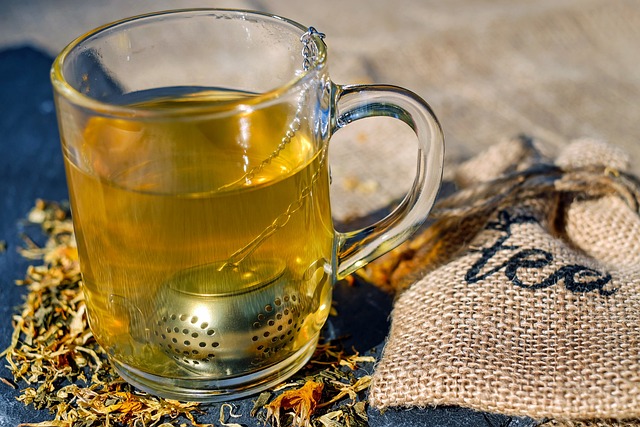Can Drinking Tea Lower Your Blood Pressure?
Can Drinking Tea Lower Your Blood Pressure?

Can Drinking Tea Lower Your Blood Pressure?
Tea, often regarded as one of the world's most beloved beverages, has been consumed for centuries for its unique blend of taste, aroma, and potential health benefits. One such benefit with significant attention is its potential to lower blood pressure. High blood pressure, or hypertension, is a common health concern that can lead to severe cardiovascular problems if left unmanaged. In this article, we'll explore the world of tea and whether sipping this soothing elixir can truly help lower your blood pressure.
Understanding Hypertension
Before we explore the relationship between tea and blood pressure, let's get a better understanding of hypertension. Blood pressure is the force of blood against the walls of your arteries, and it is typically measured in millimeters of mercury (mmHg). It is expressed as two values: systolic pressure (the higher number) and diastolic pressure (the lower number). Normal blood pressure is generally considered to be around 120/80 mmHg.
Hypertension occurs when these values consistently exceed the normal range, typically defined as 140/90 mmHg or higher. It's often referred to as the "silent killer" because it rarely presents noticeable symptoms but can lead to serious health complications such as heart disease, stroke, and kidney problems.
The Link Between Tea and Blood Pressure
Numerous studies have investigated the potential of tea to lower blood pressure. While the results are promising, it's important to note that individual responses to tea can vary, and factors such as the type of tea, brewing method, and overall lifestyle play a crucial role (1).
Types of Tea
Tea is available in various forms, each with its unique characteristics. The most common types of tea include:
Green Tea
Green tea is renowned for its high content of polyphenols, particularly catechins like epigallocatechin gallate (EGCG). These antioxidants have been linked to potential cardiovascular benefits, including blood pressure regulation.
Black Tea
Black tea, more oxidized than green tea, also contains polyphenols, albeit in slightly different forms. Theaflavins and thearubigins are antioxidants in black tea that may contribute to its potential blood pressure-lowering effects.
White Tea
White tea is the least processed among all tea types, preserving a high level of natural compounds. While it has fewer studies dedicated to its impact on blood pressure, its antioxidant properties suggest potential benefits.
Herbal Tea
Herbal teas, like hibiscus and rooibos tea, are caffeine-free and often rich in antioxidants. Some studies have suggested a potential link between herbal tea consumption and blood pressure reduction.
The Benefits of Tea on Blood Pressure
While the precise mechanisms behind tea's potential to lower blood pressure are not fully understood, researchers propose several theories:
- Antioxidants: Tea is rich in antioxidants that can help protect blood vessel walls and improve their elasticity, potentially reducing blood pressure.
- Nitric Oxide Production: Some studies suggest that tea may stimulate the production of nitric oxide, a molecule that relaxes blood vessels, leading to lower blood pressure.
- Anti-Inflammatory Effects: Chronic inflammation is linked to hypertension. Tea's anti-inflammatory properties may contribute to blood pressure regulation.
- Reduced Stress: The act of sipping a warm cup of tea can promote relaxation and reduce stress, which is known to have a positive impact on blood pressure.
How to Maximize Tea's Benefits
If you're considering incorporating tea into your routine to help manage blood pressure, here are some tips to make the most of its potential benefits:
- Choose the Right Tea: Opt for green, black, herbal, or hibiscus tea, as these varieties have shown promise in blood pressure reduction.
- Brew Properly: Ensure you follow recommended brewing times and temperatures for the specific type of tea you're consuming to extract the most antioxidants.
- Stay Consistent: Regular consumption, rather than occasional sipping, may be more effective in achieving blood pressure benefits.
- Maintain a Healthy Lifestyle: Tea should be part of a broader strategy that includes a balanced diet, regular physical activity, and stress management for optimal blood pressure control.
Conclusion
While research suggests that tea, particularly green, black, herbal, and hibiscus varieties, may contribute to lower blood pressure, it is not a standalone solution. Managing hypertension requires a comprehensive approach that includes lifestyle modifications and potentially medication under the guidance of a healthcare professional.
Incorporating tea into your daily routine can be a delightful and potentially healthful habit. So, go ahead and savor that soothing cup of tea, but remember that it's just one piece of the puzzle when it comes to maintaining optimal blood pressure and overall cardiovascular health.
